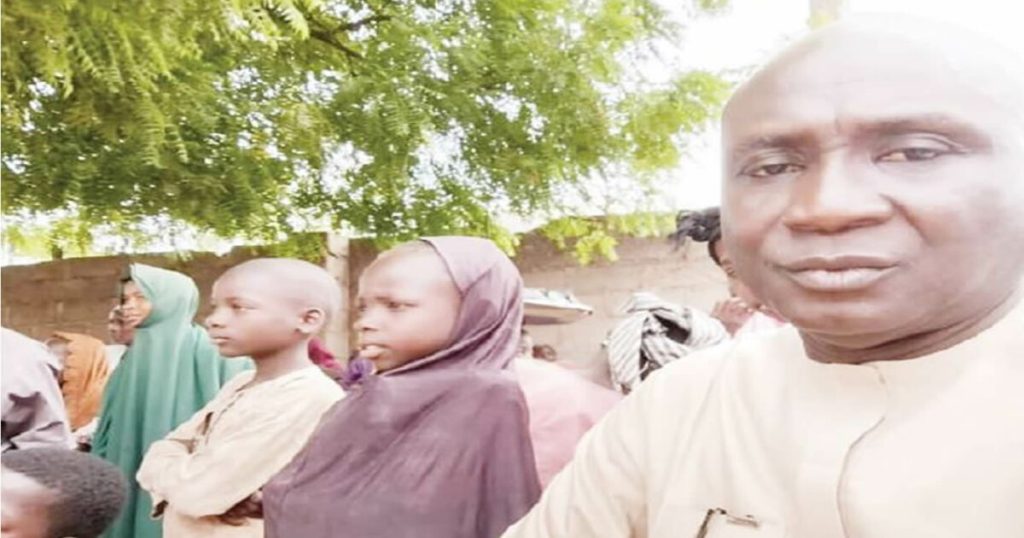The escalating insecurity plaguing Northern Nigeria finds its roots in the pervasive neglect of girl-child education, a critical issue highlighted by Professor John Ngamsa, a lecturer at Modibbo Adama University Yola. Speaking at a media training session focused on content creation for the Adolescent Girls Initiative for Learning and Empowerment (AGILE) program in Adamawa State, Professor Ngamsa, also the Implementing Coordinator and Chief Executive of Rhamo Enterprises, emphasized the stark reality of 15 million out-of-school girls in the North, contributing significantly to the national figure of 20 million. This alarming statistic underscores the urgent need for initiatives like AGILE, which aims to empower young girls through education and equip them to become future leaders. The media training session itself serves as a crucial component of the program, designed to educate journalists about AGILE’s objectives and encourage them to promote the importance of girl-child education within their communities.
Professor Ngamsa stressed the immense potential residing within Nigeria’s youthful population, particularly adolescent girls, whose empowerment and education are fundamental to driving positive change and achieving sustainable development. He characterized AGILE as a transformative program striving to uplift and support young girls across Nigeria, providing them with the necessary resources and skills to become agents of change. The program specifically targets the challenges faced by adolescent girls, who are disproportionately affected by socio-economic disparities, gender inequality, and limited educational opportunities. By addressing these systemic barriers, AGILE seeks to unlock the untapped potential of these young women and enable them to contribute meaningfully to society.
The plight of adolescent girls in Nigeria is further compounded by a multitude of factors, including early marriage, teenage pregnancy, inadequate healthcare, and deeply ingrained social norms that actively discourage female education. These pervasive issues create significant obstacles for young girls, hindering their progress and limiting their opportunities to flourish. Professor Ngamsa argued that the neglect of girl-child education not only perpetuates a cycle of poverty and inequality but also contributes to the rising insecurity in the region. By denying girls access to education, society inadvertently creates a breeding ground for instability and violence.
AGILE, therefore, represents a beacon of hope for these marginalized girls, offering a pathway to a brighter future. The program’s multifaceted approach encompasses various strategies aimed at promoting girl-child education, including community engagement, advocacy, and the provision of scholarships and other essential resources. By working closely with communities, parents, and educators, AGILE strives to create a supportive environment where girls can thrive and reach their full potential. The program’s emphasis on empowering girls through education is grounded in the belief that educated women are better equipped to make informed decisions about their lives, contribute to their families and communities, and become agents of positive social change.
The media training session, a key component of AGILE’s outreach efforts, aims to leverage the power of media to raise awareness about the importance of girl-child education and mobilize support for the program. By equipping journalists with the necessary knowledge and resources, AGILE seeks to create a network of informed advocates who can effectively communicate the program’s objectives and impact to a wider audience. The training session emphasized the crucial role of media in shaping public perception and influencing policy decisions, highlighting the need for accurate and compelling reporting on issues related to girl-child education.
In essence, AGILE represents a concerted effort to break down the barriers that prevent girls in Northern Nigeria from accessing quality education. By addressing the root causes of gender inequality and empowering girls with the knowledge and skills they need to thrive, AGILE aims to create a more just and equitable society where every girl has the opportunity to reach her full potential. The program’s success hinges on the collaborative efforts of various stakeholders, including government agencies, community leaders, parents, educators, and the media. By working together, these stakeholders can create a supportive ecosystem that empowers girls to become catalysts for positive change and contribute to a more secure and prosperous future for all.


